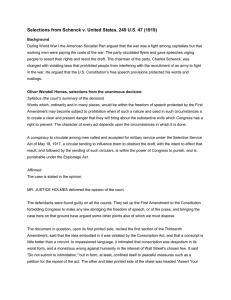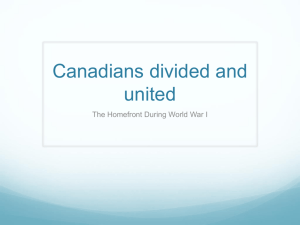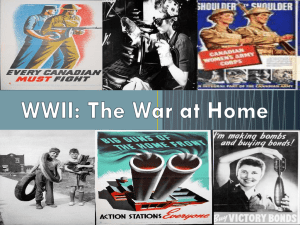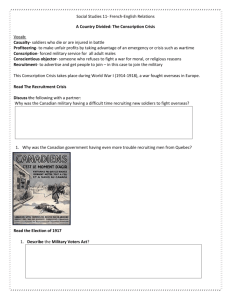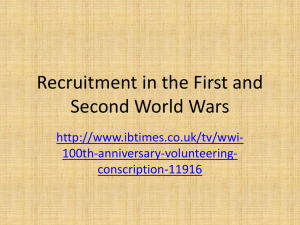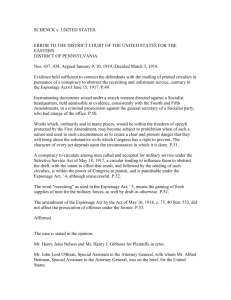Oliver Wendall Holmes
advertisement
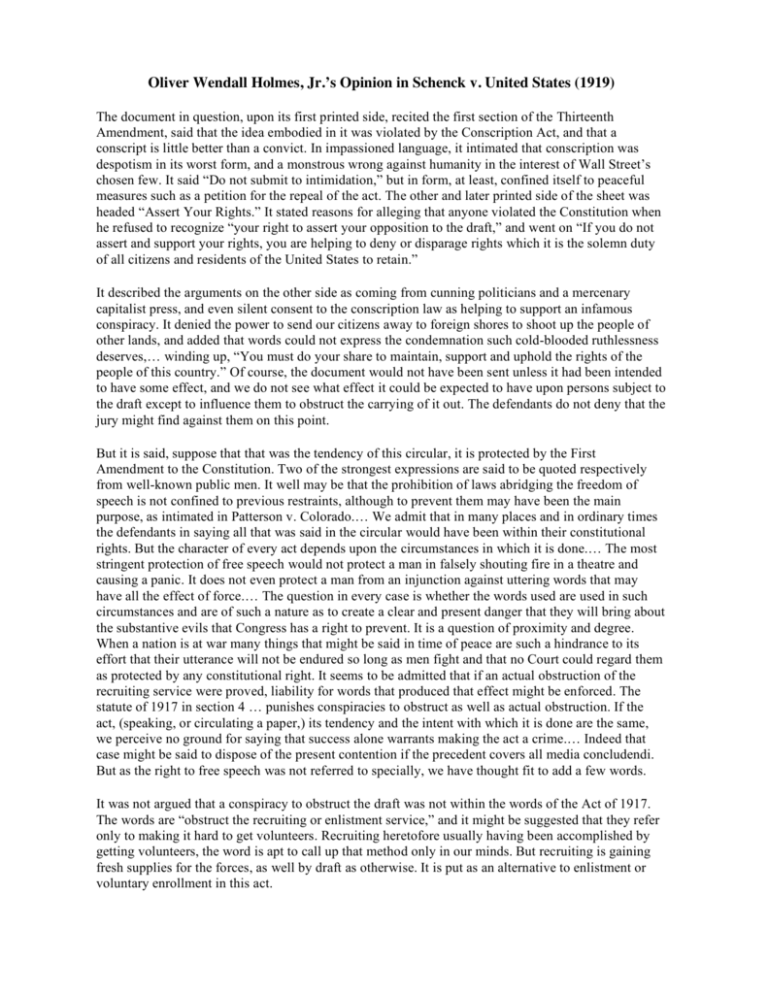
Oliver Wendall Holmes, Jr.’s Opinion in Schenck v. United States (1919) The document in question, upon its first printed side, recited the first section of the Thirteenth Amendment, said that the idea embodied in it was violated by the Conscription Act, and that a conscript is little better than a convict. In impassioned language, it intimated that conscription was despotism in its worst form, and a monstrous wrong against humanity in the interest of Wall Street’s chosen few. It said “Do not submit to intimidation,” but in form, at least, confined itself to peaceful measures such as a petition for the repeal of the act. The other and later printed side of the sheet was headed “Assert Your Rights.” It stated reasons for alleging that anyone violated the Constitution when he refused to recognize “your right to assert your opposition to the draft,” and went on “If you do not assert and support your rights, you are helping to deny or disparage rights which it is the solemn duty of all citizens and residents of the United States to retain.” It described the arguments on the other side as coming from cunning politicians and a mercenary capitalist press, and even silent consent to the conscription law as helping to support an infamous conspiracy. It denied the power to send our citizens away to foreign shores to shoot up the people of other lands, and added that words could not express the condemnation such cold-blooded ruthlessness deserves,… winding up, “You must do your share to maintain, support and uphold the rights of the people of this country.” Of course, the document would not have been sent unless it had been intended to have some effect, and we do not see what effect it could be expected to have upon persons subject to the draft except to influence them to obstruct the carrying of it out. The defendants do not deny that the jury might find against them on this point. But it is said, suppose that that was the tendency of this circular, it is protected by the First Amendment to the Constitution. Two of the strongest expressions are said to be quoted respectively from well-known public men. It well may be that the prohibition of laws abridging the freedom of speech is not confined to previous restraints, although to prevent them may have been the main purpose, as intimated in Patterson v. Colorado.… We admit that in many places and in ordinary times the defendants in saying all that was said in the circular would have been within their constitutional rights. But the character of every act depends upon the circumstances in which it is done.… The most stringent protection of free speech would not protect a man in falsely shouting fire in a theatre and causing a panic. It does not even protect a man from an injunction against uttering words that may have all the effect of force.… The question in every case is whether the words used are used in such circumstances and are of such a nature as to create a clear and present danger that they will bring about the substantive evils that Congress has a right to prevent. It is a question of proximity and degree. When a nation is at war many things that might be said in time of peace are such a hindrance to its effort that their utterance will not be endured so long as men fight and that no Court could regard them as protected by any constitutional right. It seems to be admitted that if an actual obstruction of the recruiting service were proved, liability for words that produced that effect might be enforced. The statute of 1917 in section 4 … punishes conspiracies to obstruct as well as actual obstruction. If the act, (speaking, or circulating a paper,) its tendency and the intent with which it is done are the same, we perceive no ground for saying that success alone warrants making the act a crime.… Indeed that case might be said to dispose of the present contention if the precedent covers all media concludendi. But as the right to free speech was not referred to specially, we have thought fit to add a few words. It was not argued that a conspiracy to obstruct the draft was not within the words of the Act of 1917. The words are “obstruct the recruiting or enlistment service,” and it might be suggested that they refer only to making it hard to get volunteers. Recruiting heretofore usually having been accomplished by getting volunteers, the word is apt to call up that method only in our minds. But recruiting is gaining fresh supplies for the forces, as well by draft as otherwise. It is put as an alternative to enlistment or voluntary enrollment in this act. Questions 1. The 13th amendment abolished slavery and involuntary servitude. Why do you think the document opposing conscription used this amendment? 2. What does it mean to “petition for the repeal”? 3. Holmes, Jr. summarizes the document in the second paragraph. What action does he feel readers of the document would take? 4. What major freedom is protected by the First Amendment that the justice refers in the third paragraph? 5. Rephrase this quote: “The most stringent protection of free speech would not protect a man in falsely shouting fire in a theatre and causing a panic.” 6. Why would that not be protected (the example in #5)? 7. Explain the following quote: “When a nation is at war many things that might be said in time of peace are such a hindrance to its effort that their utterance will not be endured so long as men fight and that no Court could regard them as protected by any constitutional right.” 8. Why might the Court rule that speech can be limited in times of war? 9. Do you feel there ought to be limits on any sort of speech? Why or why not? Provide examples for your perspective. Answers 1. Conscription is drafting someone to the military; it is a requirement if you are called to service, therefore they are not asking if you want to serve and if you don’t it might be considered involuntary servitude. 2. To petition the government is to ask for change, this might be done in a march, a letter, lobbying Congress, etc. 3. He claims that people would understand it to be urging people to stop and disobey the draft. 4. Freedom of speech. 5. Even if free speech were always protected, it would not allow someone to cause pain or suffering knowingly. 6. Answers will vary but might include: Because it would be protecting harmful acts. 7. When a nation is in the middle of a war, its citizens need to give up some rights in order to be successful in the struggle against the enemy. It might not be possible to say or do everything that is allowed during a time of peace. 8. Answers will vary but might include: The government needs the help of its citizenry more than people need to express themselves. 9. Answers will vary but ought to be backed up reasons.
